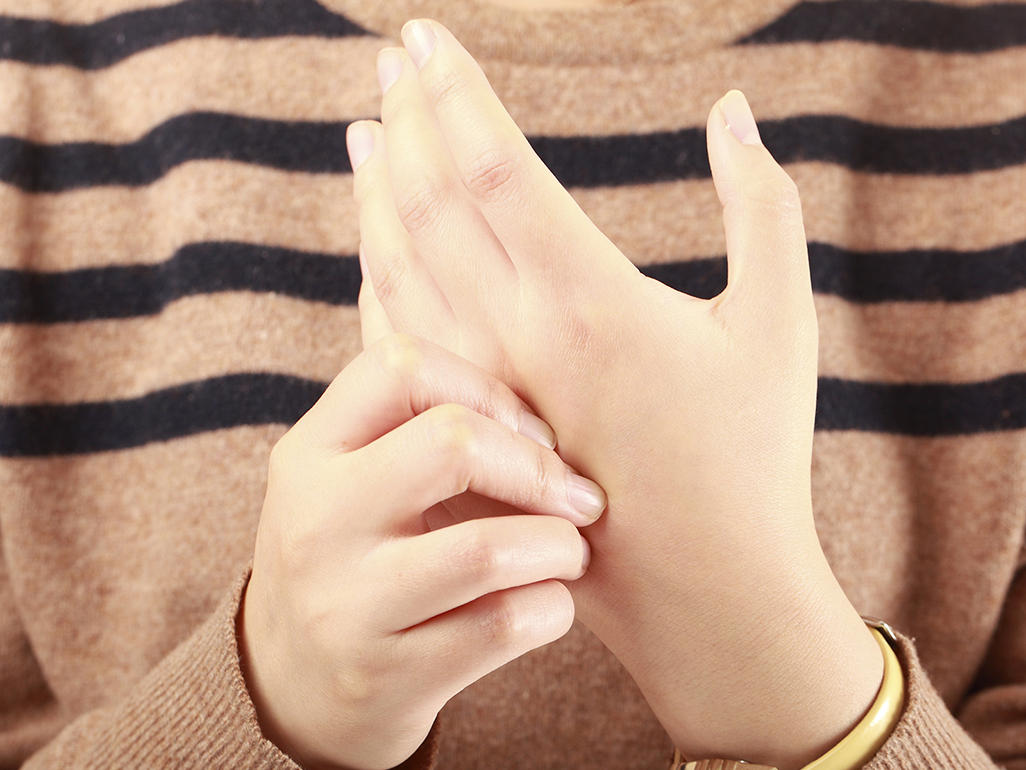
You have arthritis pain, and the inflammation in your joints causes your fingers to swell up and resemble little sausages. Or maybe you’ve chowed down a salty meal, and now your wedding ring is stuck on your finger. Should you freak out? Probably not. Fingers swell for a lot of reasons—many of them harmless—but sometimes the puffiness (medical term; dactylitis) points to more serious health conditions.
Here are some of the common causes of swollen fingers!
It’s really hot outside
Heat causes blood vessels to expand, which allows more heat to escape through your skin so you can keep cool, explains Tammy Olsen Utset, MD, MPH, an associate professor in the rheumatology department at the University of Chicago. As the vessels stretch, some of their fluid can leak into your soft tissues and cause puffiness.
Dr. Utset says this type of swelling tends to go away as you use your hands and continue your regular activity. But if you notice puffiness only in your hands and fingers (and not your legs), accompanied by pain or a weak grip, that could be a sign it’s not just the heat and you need to consult your doctor.
Too much salt
General Tso’s chicken, lots of chips and guac, or anything fried could be the cause of your frankfurter fingers. Your body likes to keep a consistent salt-to-water balance. Taking more salt in means your body compensates by retaining more water, which explains the swelling, Dr. Utset says.
Typically, mild swelling brought on by salty foods goes away on its own within a day, although, it can lasts longer depending on how much extra salt is in your system. If you cut back on salt and the swelling persists, see your doctor, Dr. Utset advises.
Osteoarthritis or rheumatoid arthritis
If it’s the bony finger joints themselves that are enlarged (i.e., you can’t get your rings over your knuckles), osteoarthritis may be to blame, especially if your fingers are swollen in the morning. This age-related form of arthritis is caused by the wearing down of the cushioning tissues at the end of your joints. Osteoarthritis is often, but not always, accompanied by pain and stiffness, Dr. Utset says.
Rheumatoid arthritis (RA), an autoimmune disease that attacks the lining of the joints, can also cause swelling. Unlike osteoarthritis, RA isn’t age-related and can happen to anyone, at any age. Swelling in people with RA often happen in the wrists and finger joints. “RA can cause the joints to swell up as well as cause inflammation in between the joints,” says Neha Vyas, MD, a physician in the department of family medicine at Cleveland Clinic
Carpal tunnel syndrome
When the nerve that runs from the forearm to the palm of the hand is pinched or squeezed at the wrist, that’s when carpal tunnel syndrome develops, Dr. Utset explains. The resulting swelling is usually accompanied by pain, burning, tingling, or numbness in the hands and fingers—symptoms that often develop slowly over time. Research suggests carpal tunnel affects three times as many women as men. To help prevent and treat carpal tunnel syndrome, do these five stretches at your desk.
It might be a blockage in your lymphatic system
Lymphedema is a limb-swelling disease that results when lymph fluid (which carries waste, bacteria, and viruses out of the body) doesn’t adequately drain. Your fingers and toes may swell, and usually your arms and legs will swell, too. Your skin may also feel tight or thicker than usual, according to a report from the National Cancer Institute. Lymphedema has been linked with surgery or radiation breast cancer treatments. In rare cases, lymphedema can also be caused by the abnormal growth of your lymph system.

























